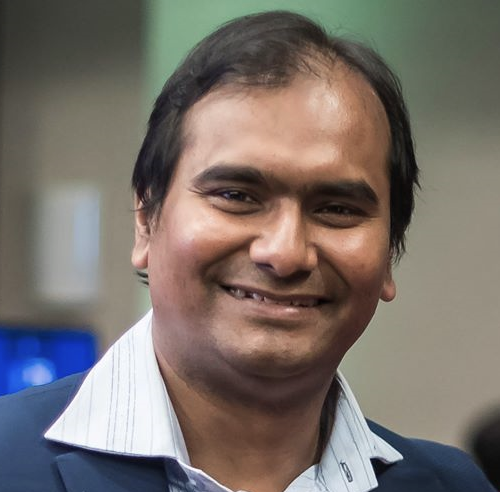
Anowarul Amin, Ph.D.
Dr. Anowarul Amin manages a portfolio of grants in biophysics, structural biology, protein engineering, proteomics, cellular imaging, and emerging technology development for cancer biology. He also has expertise in biophysics of intrinsically disordered proteins (IDPs) and liquid-liquid phase separation (LLPS).
Along with his DCB responsibilities, he is a member of the external advisory group for the Advanced Photon Source (APS) at Argonne National Laboratory and the Synchrotron Program Officers Group (SPOG).
Dr. Amin states that the opportunity to “encourage a particular, effective or innovative technology that can promote a breakthrough in solving a fundamental cancer problem,” is a major motivator for his work in DCB.
Research Programs
Dr. Amin is also involved in a trans-NCI and an NIH Common Fund Program:
- Innovative Molecular Analysis Technologies (IMAT)
- Transformative High-Resolution Cryo-Electron Microscopy
Background
Prior to his work as a DCB program director, Dr. Amin was a research fellow with the National Institutes of Neurological Disorders and Stroke (NINDS) where he investigated the role of lysosomal proteins in disease. During his first postdoc at Texas Tech University Health Sciences Center (TTUHSC), he developed extensive knowledge in structure-function studies of membrane proteins.
Education
- Ph.D., Biochemistry and Biophysics, Tokyo University of Science
- M.S., Biochemistry and Molecular Biology, University of Dhaka
- B.S., Biochemistry and Molecular Biology, University of Dhaka